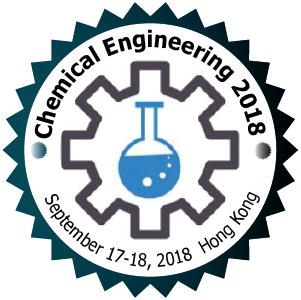
Jian Yu
University of Hawaii at Manoa, USA
Title: A novel bioprocess for value-added products from carbon dioxide and renewable power
Biography
Biography: Jian Yu
Abstract
Carbon dioxide (CO2) is a prime green-house gas emission from industrial processes. It can be converted into bio-oil by microalgae via conventional photosynthesis. The CO2 fixation rate, however, is quite low and affected by the intermittent solar radiation. Cupriavidus necator, a hydrogen-oxidizing bacterium, was grown on CO2 and H2 in dark gas fermentation to produce single cell proteins and Polyhydroxybutyrate (PHB). Sunlight is captured by photovoltaic modules and immediately converted to H2 as a stable energy source via water electrolysis. The clean H2 and O2 are used by C. necator in CO2 assimilation. Under the chemolithotrophic conditions, the average CO2 uptake rate was 1.2 kg m-3 h-1. The molar ratios of H2/CO2 was 7.3 and the biomass/H2 yield was 1.4 g g-1. The overall energy efficiency from H2 to biomass was 22.4%. Under nutrient control, the PHB content of dry cell mass was 65 wt%. The polymer productivity was 1.87 g L-1 d-1, 14 times higher than oil productivity by a typical bio-oil-producing microalga. PHB is a biodegradable thermoplastic that can find various environmentally friendly applications. The biopolyester can also be converted into small functional chemicals (C3-C4). Specifically, PHB was degraded and deoxygenated on a solid phosphoric acid catalyst, generating a hydrocarbon oil (C6-C18) from which a gasoline-grade fuel (77 wt% oil) and a biodiesel-grade fuel (23 wt% oil) were obtained via distillation. Aromatics and alkenes were the major compounds, depending on the reaction conditions. This work demonstrated a bioprocess through which bioplastics and high-grade liquid fuels can be directly produced from carbon dioxide. The novel bioprocess can be continuously operated regardless the intermittency of renewable powers.

